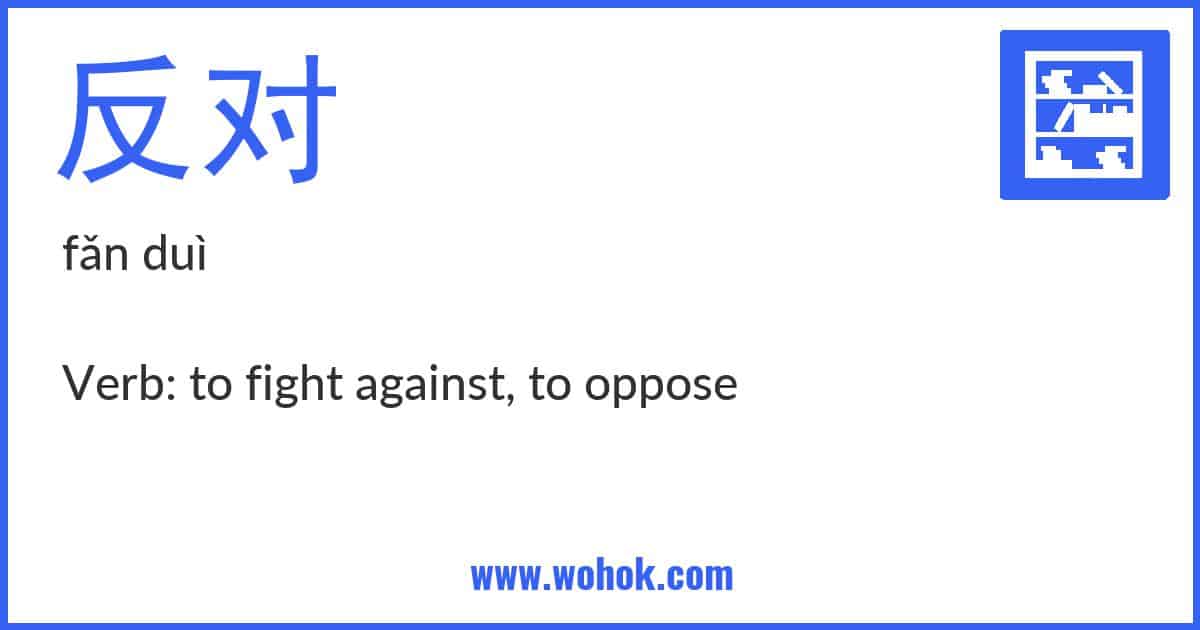The Chinese word 反对 means “to oppose” or “to object”. It is commonly used in both formal and informal contexts to express disagreement or disapproval towards a particular idea, policy, or action. For example, one might say “我反对这个决定” which translates to “I oppose this decision”.
Translation
Verb: to fight against, to oppose
Pronunciation
Example Sentences
| Chinese | Pinyin | Engish |
|---|---|---|
| 我们强烈反对这个计划 | wǒmen qiángliè fǎnduì zhège jìhuà | We strongly oppose this plan |
| 他们反对政府的政策 | tāmen fǎnduì zhèngfǔ de zhèngcè | They are against the government’s policies |
| 这个决定引起了一些人的反对 | zhège juédìng yǐnqǐle yīxiē rén de fǎnduì | This decision has sparked opposition from some people |
| 我们不能坐视不理,必须反对这种不公正的行为 | wǒmen bùnéng zuòshì bùlǐ, bìxū fǎnduì zhè zhǒng bùgōngzhèng de xíngwéi | We cannot sit idly by and must oppose such unfair behavior |
| 这个提议遭到了全体员工的反对 | zhège tíyì zāodàole quántǐ yuángōng de fǎnduì | This proposal has met with opposition from all employees |
| 我们需要采取措施来反对这种不良行为 | wǒmen xūyào cǎiqǔ cuòshī lái fǎnduì zhè zhǒng bùliángxíngwéi | We need to take measures to oppose such bad behavior |
| 反对暴力是每个公民的责任 | fǎnduì bàolì shì měi gè gōngmín de zérèn | Opposing violence is the responsibility of every citizen |
HSK
反对 is part of HSK Level 4 in HSK 2.0. In the newer HSK 3.0 it is part of HSK Level 3.
Learning Card


